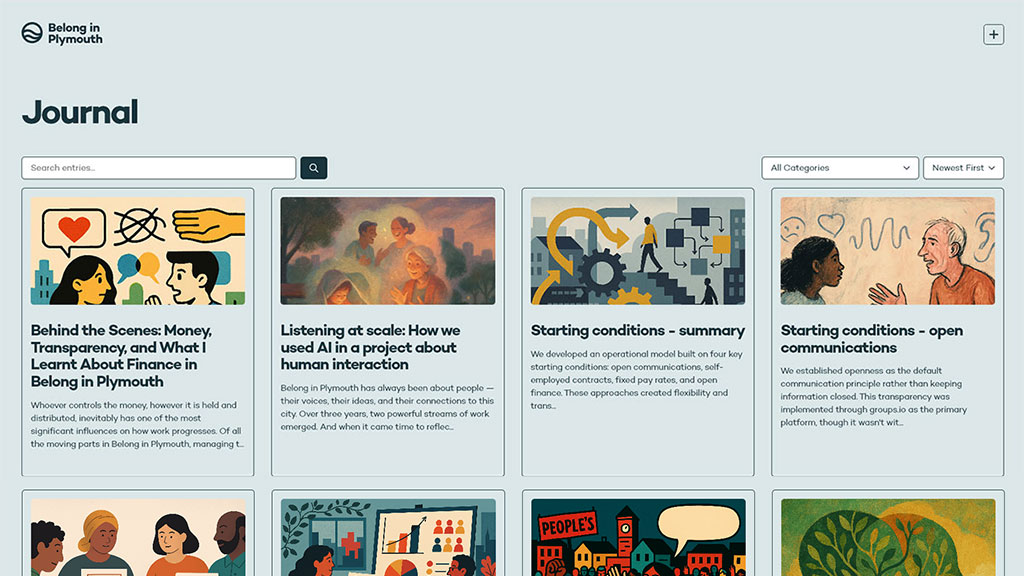What happens when you feed AI three years of feelings, emails, and biscuits?

I’m very happy to report the Belong in Plymouth website is now live.
This was a big one. Over the course of three years, the Belong team gathered hundreds of conversations with people across Plymouth — voices that might otherwise stay unheard. Our job at Minnow was to help make all that insight usable, searchable, and shareable, without losing the human soul of it.
No pressure, then.
Talking with Plymouth
The first strand of the project was all about conversations — hundreds of them, recorded in cafés, community spaces, parks and kitchens. Our challenge was to take these sprawling, beautiful, unscripted chats and cut them into fragments that actually made sense. That meant tagging, theming, moderating, and finally indexing them into a searchable interface powered by natural language AI.
You can now type a question like “What do people say about feeling safe in Plymouth?” and get real answers — drawn from the words of real people.
We used a stack that included Astro, React, Firebase, Pinecone and Airtable. The tech matters of course, but the real value was in making it feel intuitive aand effortless — like you could ask the city a question.
A Journal of Discovery
The second strand was something a bit different: a journal that captures the behind-the-scenes journey of the Belong team themselves. We were handed three years of emails, minutes, and memos — the sort of beautifully chaotic archive that only a real project generates.
Using AI, we distilled this into over 100 bite-sized blog posts — each one about 400 words — capturing key insights, turning points, and gentle arguments over strategy, hope, and occasionally biscuits. We quoted the team in their own words wherever possible, because frankly, they said it best.
A Few Lessons
This project reminded us that AI can be more than a content machine — it can be a lens. Used thoughtfully, it helps us hold complexity, find patterns, and amplify the meaning that’s already there. But it also needs human hands: to steer, to moderate, and sometimes to just prevent it going off on one. It is after all, not really intelligent, and even though it's verry fast and knows a lot, it doesn'tr know as much about your business or project as you do.
We’re proud of the result: a public platform that doesn’t just showcase the work, but invites others to explore, reflect, and continue the conversation.
Hats off to the Belong in Plymouth team. If you’re curious about how we might be able to help you turn your mountain of unstructured data into something useful, we’re all ears.